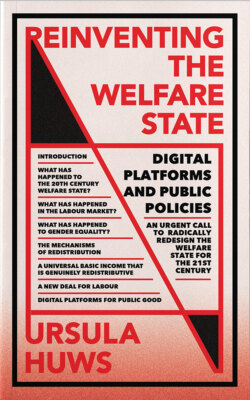Читать книгу Reinventing the Welfare State - Ursula Huws - Страница 16
На сайте Литреса книга снята с продажи.
A TWENTY-FIRST CENTURY WORKHOUSE WITHOUT WALLS
ОглавлениеIn this upside-down welfare state, in which the poor are subsidising the rich, what is the experience of being in need? The Beveridgean welfare state did not hold with idleness, but did seem to aim to provide some dignity and choice to welfare recipients for whom benefits were supposed to be an entitlement, not something to beg for, as they had been in the dark pre-war period. So deeply engrained is the notion of social progress, that few British people would imagine comparisons could be drawn between the twenty-first-century welfare state and the Victorian workhouse, where families were broken up and the poor forced to do menial labour in return for food and shelter. Yet, viewed objectively, the welfare state today has many more features in common with its nineteenth-century predecessor than with the comparatively humane mid-twentieth-century model than we should be comfortable with. Gone is the idea that unemployed people, having paid contributions into a national insurance scheme, have an unconditional right to their benefits for a specified period. Instead, as ‘jobseekers’, they are forced by savage sanctions (withdrawals of benefit) regimes into accepting whatever work is available, however low paid, or, if no such work is available, into unpaid ‘work experience’ – the twenty-first-century equivalent of picking oakum or breaking stones (with the welfare system, as we have seen, providing their employers with a hidden subsidy for the use of this labour). Once sanctioned, many are rendered destitute: forced to sleep on the street or use food banks to survive. Perhaps the main difference is that the Victorian workhouse would at least have provided them with a bowl of gruel, a dry bed and a roof over their heads.
The statistics are shocking. According to the Trussell Trust, the number of emergency food parcels delivered to people in crisis by food banks reached a record 823,145 in the six months between April and September 2019, a 23 per cent increase on the previous year. Among the recipients, ‘one in five have no money coming in at all in the month before being referred for emergency food’ and ‘94 per cent of people at food banks are destitute’.9 The number of rough sleepers also reached a record high. Research commissioned by the Greater London Authority found 8,855 people sleeping rough in London between April 2018 and March 2019, of whom 62 per cent were sleeping rough for the first time.10 In 2018, the Department for Work and Pensions admitted that between April 2013 and April 2018 over 21,000 people died while waiting for benefits.11 Meanwhile, it was estimated that the number of children from working households growing up in poverty rose by 38 per cent from 2010 to 2018 – from an estimated one in five households to one in four.12
